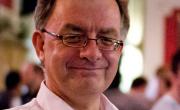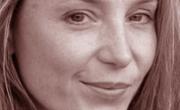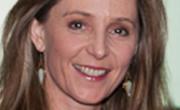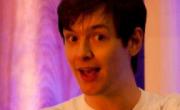
Curated by The Skeptic Magazine, the Nine Worlds Skepticism track will host talks and discussions on science and critical thinking. Skeptics like evidence - so we get into all the most interesting subjects with the question: "How do you back that up?" If you've ever wondered about alien contact experiences, vampires, the brain-science of religious experiences, how PR came to rule modern journalism, and lots more: these talks and discussions are for you.
Everything's in room 11.
Saturday
10.00am - 11.15am
Temporal Lobes and Spiritual Experiences - with Niall McCrae and Joanne Roberts
Niall McCrae is a lecturer in mental health at King's College London. In his work on spiritual experiences in temporal lobe epilepsy he has developed his critique of the naive, materialist tendencies in the doctrine of evidence-based practice. Niall leads research projects on depression and dementia, while in his spare he is writing a history of the mental hospitals in Britain.
3.15pm - 4.30pm
Magicians and Misdirection: using magic for psychology research - with Robert Teszka
Magicians have the uncanny ability to manipulate how people perceive the world, and this is something worth understanding. The techniques of misdirection provide a useful framework for understanding attention and its link to eye movements, and magic in general is a valuable tool for designing research. In this talk, Rob discusses how magic is studied experimentally, and what the findings of magic research mean for the psychology of attention and awareness.
5.00pm - 6.15pm
The Psychology of Alien Contact - with Professor Chris French
Thousands of people around the world claim to have directly experienced contact with extraterrestrials, and, in many cases, to have been abducted by aliens and taken on board spaceships and subjected to medical examination. How are we to explain such claims? With a few notable exceptions, those making such claims do not appear to be deliberately lying. Neither do they appear to be suffering from serious psychopathology. However, there are good reasons for doubting that such accounts are accurate reflections of events taking place in objective reality. A number of psychological factors have been implicated in attempts to explain such claims, including sleep paralysis, personality factors such as fantasy proneness, and, possibly, unusual activity in the temporal lobes of the brain. It seems likely that alien contact and abduction claims are examples of false memories.
6.45pm - 8.00pm
Interview with a Vampire Expert - with Deborah Hyde
The Vampire has fascinated Western Europe from the early 1700s, but the tradition was a real part of Eastern European lives for a considerable time before that. In the last three centuries, the icon has been taken up by art of all kinds – literature, film and graphics – and it has had a lasting effect on fashion and culture. But what is the authentic story behind tales of the predatory, living dead and can we understand a little more about being human by studying these accounts? We will look at recent attempts to understand the folklore and try to work out how an Eastern European ritual made its way to late nineteenth century New England, USA.
Sunday
3.15pm - 4.30pm
London Skeptics Roundtable
Topic tbc. London Skeptics in the Pub is an award winning lecture series, covering science, technology, history, philosophy and related current affairs.
5.00pm - 6.15pm
Psychics and Pseudoscience - with Michael Marshall
It’s easy to think of pseudoscience existing in a glass case at a museum – something to be examined and critiqued from a safe distance, but not something to touch and to play with. Using examples taken from his own personal experiences in skepticism, Michael Marshall will show what happens when you begin to crack the surface of the pseudosciences that surround us – revealing the surprising, sometimes-shocking and often-comic adventures that lie beneath.
6.45pm - 8.00pm
Autism Treatments - the good, the bad and the ugly - with Tannice Pendegrass
Tannice discusses the toxic treatments that many autistic children are subject to on a daily basis. Focusing on hyperbaric oxygen tanks, Lupron (US only) and Chelation, she reveals a murky world of misunderstandings and misrepresentations as to the causes and ‘fixes’ that alternative medicine proposes. Careful to weigh up the costs and benefits of several alternative medicines in the context of frightened parents who lack adequate support, Tannice’s talk has been described as “informative, eye-opening and anger-inducing” as well as “packed full of information to entertain, inform and shock”. Tannice also takes her audience through the results of her survey examining attitudes towards people on the spectrum: this reveals some incisive as well as misguided responses to what ‘cures’ or causes autism. She touches upon the controversial disability rights issue of whether a ‘cure’ for autism is a useful idea; the notion of how autism can be regarded as both a help and a hindrance; and, vaccinations and the false link between MMR and autism.





